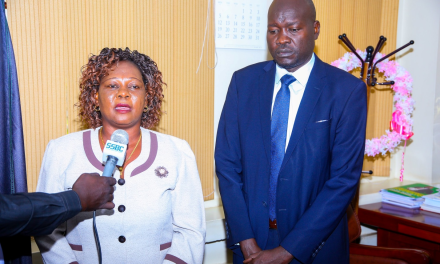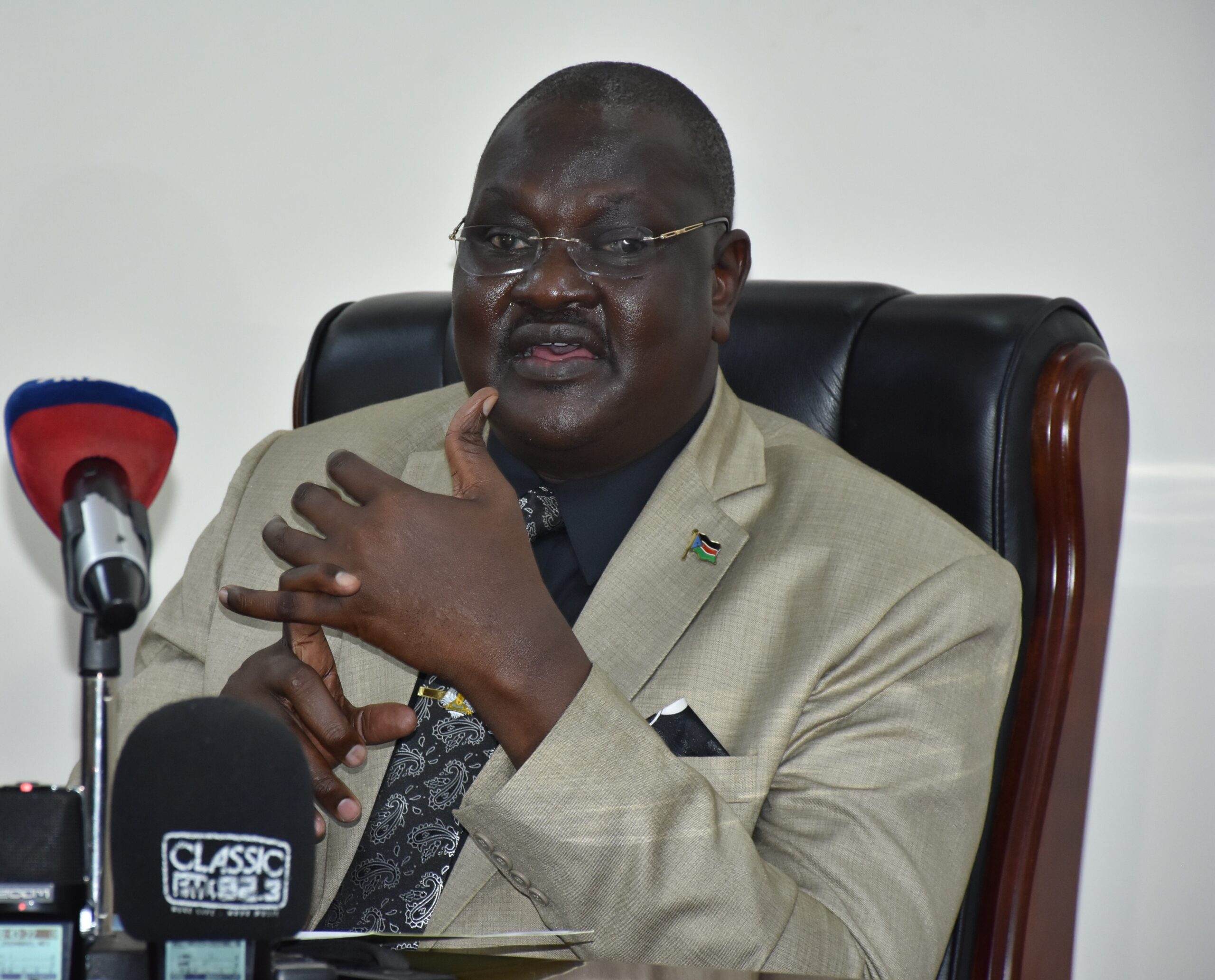
50 South Sudanese medics complete third Chinese language courses

At least 50 South Sudanese medical professionals finished on Thursday three-month Chinese language courses aimed at acquainting them with knowledge and understanding of China.
Anthony Lupai Simon, Director General of Juba Teaching Hospital, said learning Chinese language will help South Sudanese medics to prescribe the right medicines donated annually by various China medical teams to patients.
He also said the language courses will help South Sudanese medics to operate with ease medical equipment provided to the main referral hospital by the Chinese government.
“This is now the third year that they want us to learn how to read and speak Chinese language, when we sit in the hospital we have a number of items that come and they are written in Chinese, you get a drug but you will not know what drug it is because you don’t read Chinese,” Lupai said during the graduation ceremony held in Juba.
Xu Zhangwei, Team Leader of the Tenth batch of China medical team, said they trained the medics in topics such as Chinese character, history, geography, cuisine styles, dance, and many other things about China.
“Chinese language courses aim to strengthen people-to-people exchange between China and South Sudan, which becomes a major channel for our colleagues in Juba to understand Chinese culture,” he said.
“After finishing these courses, many people get a full view of China. And we also learnt many South Sudanese cultures and got more understanding of South Sudan from listeners during these activities,” Xu added.
This year, the China medical team visited Paloch Friendship Hospital of Upper Nile state and Twic East County Hospital of Jonglei to provide free medical services. The 10th batch of China medical team is set to leave the country in September and will be replaced by the Eleventh batch of China medical team.
Ader Macar Aciek, undersecretary in the ministry of health, praised the language courses undertaken by various China medical teams, that he said are proof to the strong cooperation and partnership between the two countries.
He called for closer cooperation in the upcoming expansion and modernization of the Juba Teaching Hospital Phase II project.
“We are looking forward to cooperate with you, and to have this partnership as one of the development partners to South Sudan. We are looking forward to cooperate in the following areas, there is this upcoming phase II we would like our team to be part of it from the planning until the execution and equipment,” Macar said.
The expansion and modernization of the Juba Teaching Hospital Phase II project, with a total site area of about 2.28 hectares and a total floor area of about 16,000 square meters, includes six functional divisions: specialist outpatient division, medical technology division, inpatient division, infectious disease division, administration division and logistics support division.
The Phase I project was completed and handed over to the government in 2019.
Macar thanked the Chinese Embassy in South Sudan for contributing 20,000 U.S dollars to repair the broken CT scanner machine in Juba Teaching Hospital.
However, he requested the Chinese embassy to facilitate training of South Sudanese bio-medical engineers to learn how to repair and maintain medical equipment donated by the Chinese government.
“We have distinguished bio-medical engineers at the ministry of health and we would like you to train them on how to maintain medical equipment,” Macar said.

Ma Qiang, Chinese Ambassador to South Sudan, said Chinese language courses play vital role in easing cultural exchange between people of the two countries.
“Learning each other’s languages and cultures, I believe, must be helpful to a better communication between China medical team and it’s local counterparts. Especially to those who are going to visit China for training and exchanges, these courses can truly help you to understand China,” he said.
He said South Sudan will receive this year, a full-new pathology department, a tele-diagnosis center and an infectious disease laboratory through the counterpart hospital cooperation mechanism between China and South Sudan.
“This year also marks the 11th anniversary of the dispatch of China medical team to South Sudan. Over the past 11 years, 149 Chinese medical workers have come to South Sudan successively, treated 58,960 outpatients, performed 1,036 operations of various types, carried out gastroscopy examinations for 1,054 people, and conducted 33 free medical camps in outreach regions of the country,” Ma said.



































